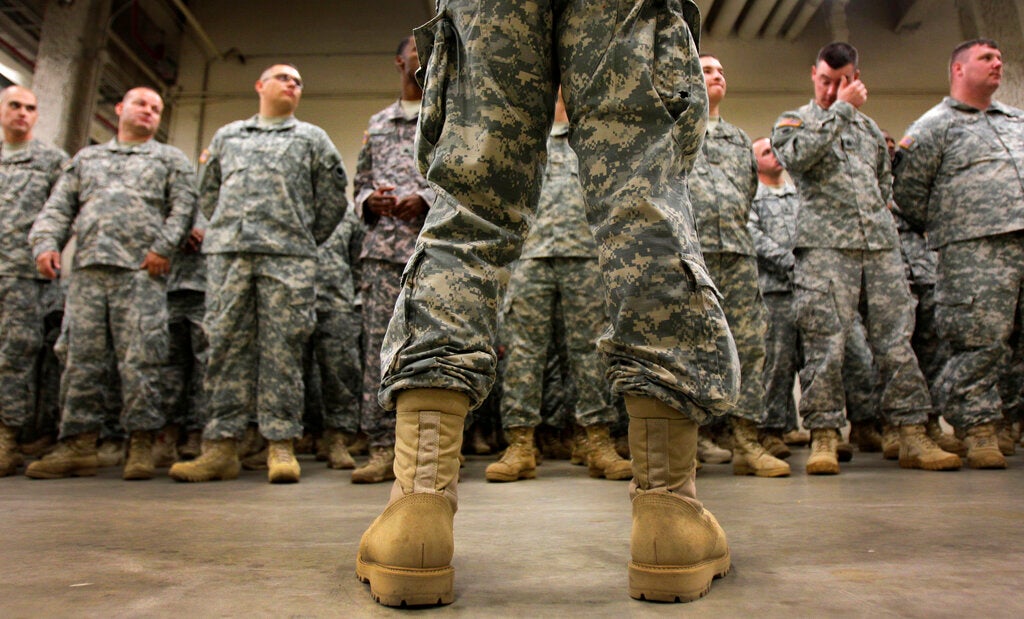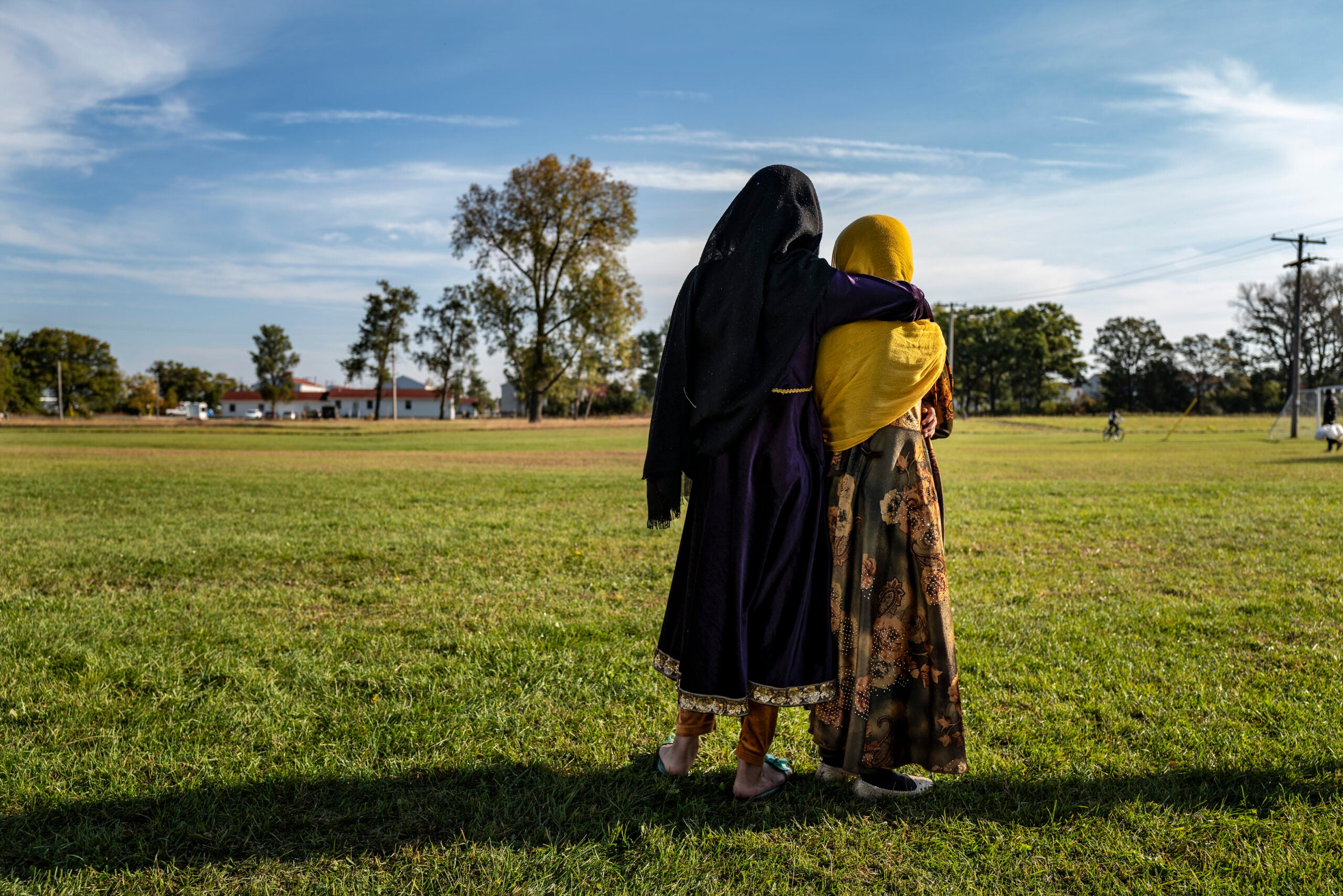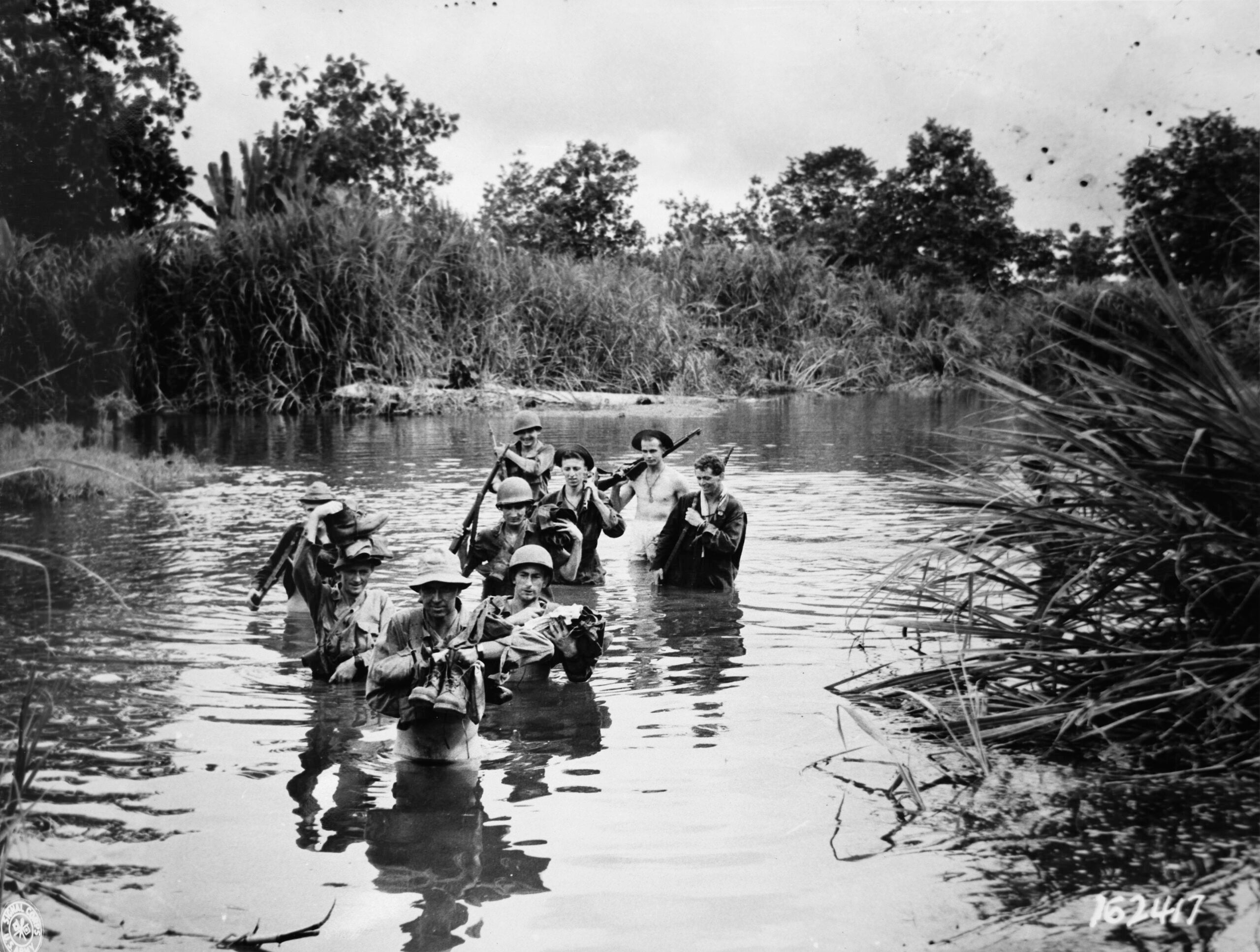More than 60 Wisconsin National Guard soldiers with the 732nd Combat Sustainment Support Battalion were called up to active duty just over five weeks ago.
Their mission is to support Operation Inherent Resolve, a joint military task force to reduce the threat of the Islamic State terrorist group, better known as ISIS.
Brig. Gen. David May is the interim adjutant general for Wisconsin’s National Guard. He spoke with WPR’s “Wisconsin Today” about recent deployments and ongoing recruitment challenges.
News with a little more humanity
WPR’s “Wisconsin Today” newsletter keeps you connected to the state you love without feeling overwhelmed. No paywall. No agenda. No corporate filter.
The following interview was edited for brevity and clarity.
Kate Archer Kent: What can you tell us about Operation Inherent Resolve and this mission to weaken ISIS?
Brig. Gen. David May: I can talk at a general level that the primary thing of importance right now is that the U.S. maintain a presence in that particular area of operations. It gives support to our partners and our allies and to potential aggressors it shows them that we have a resolve to maintain a presence in that area and keep things going in the right direction.
Our soldiers play a key role in that, whether it’s day to day sustainment missions or as things change and they get called into more emerging or more active missions. But they’re there to support whatever needs to be done. And of course, they’re taking direction from active duty leadership in charge of that operation.
KAK: The man the FBI identified as the perpetrator of the New Year’s Day terrorist attack in New Orleans claimed alignment with ISIS and had a U.S. military career in the army. How are you reflecting on this burst of violence in an American city?
DM: Like everyone, it’s concerning to me, individually, and concerning to me as a military professional. ISIS is as much an idea as it is an organization. And defeating an idea that doesn’t necessarily need a conventional structure behind it is really hard.
For years, we’ve acknowledged that homegrown violent extremists are potentially the biggest terror. We have challenges because detection is so difficult, and the FBI works tirelessly on making sure that we detect as many possible threats that are out there. But this is a really complicated and difficult challenge.
KAK: In September around 10 guard soldiers were deployed to the Horn of Africa. Their mission with the U.S. Africa Command is to strengthen the defense capabilities of African countries. What threats are soldiers hoping to address in this area? Can you update us on this deployment?
DM: Not unlike the Central Command Mission, this is very much a presence mission as well. It’s about supporting partners and allies and maintaining some capability there. As we grow our relationships in Africa, it’s essential that we have forces there that can partner with various countries in the Horn of Africa.
And having been there much earlier in my career, I can tell you that’s really important and gratifying work. But we’ve got to be there physically to have an impact, because there are other countries, like China, that are also trying to do the same thing, just in a very different manner. So having an alternative type of relationship for these countries with the U.S. is really important, and our soldiers are supporting that.
KAK: The U.S. Department of Defense says only 23 percent of people between ages 17 and 24 even qualify to join the military, and it can be due to medical conditions, criminal background or obesity. Does the Wisconsin National Guard have challenges in recruiting soldiers?
DM: We do. We share the challenge with really all components of the military and things really changed during COVID. They just don’t know enough about the guard, and the guard is full of just enormous opportunities.
We are having a challenge and we are starting to see modest improvements this year as we continue to try different ways to engage with that younger, recruitable population. Though I’ll add we actually accept recruits up to age 42 so it’s not just necessarily young people. There are a fair amount of people that decide to start a career with us a little bit later in life.





